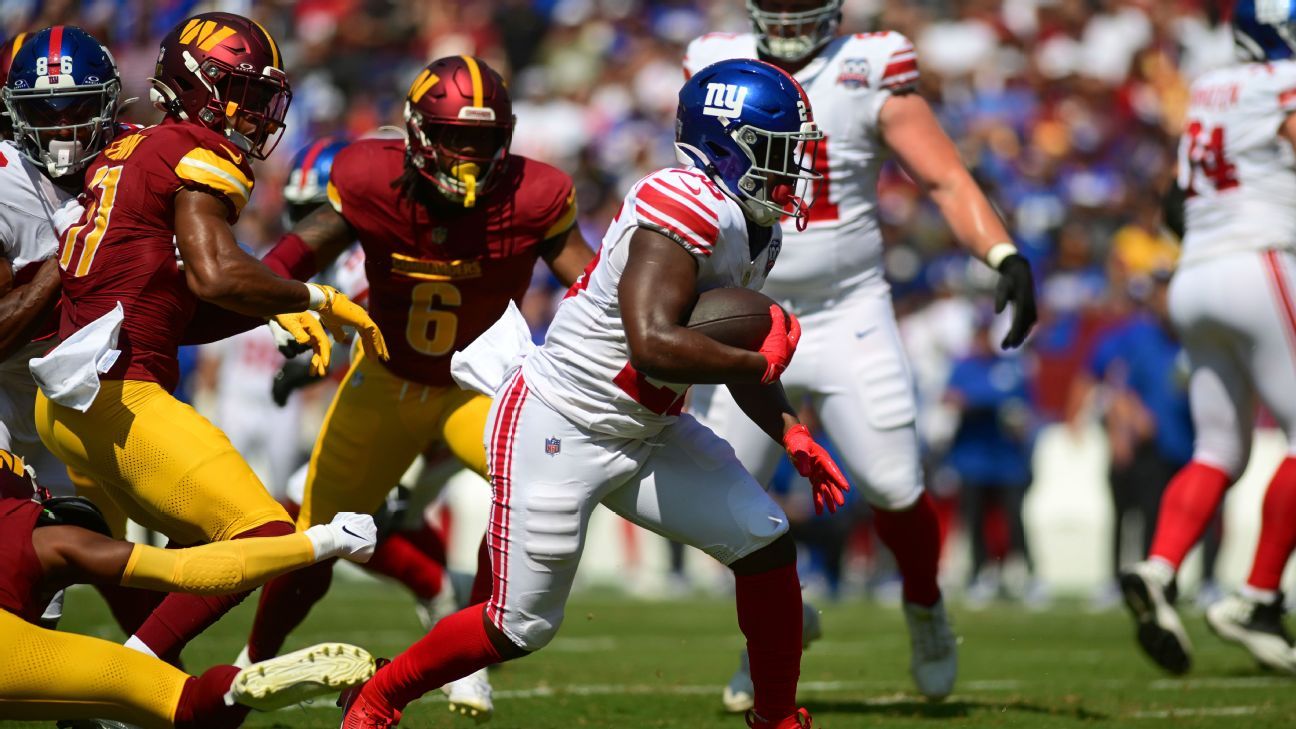After ended, many folks were left on yearn: where would we turn now for poisonous personal drama between rich weirdos? Whatever would we do without our loathsome yet somehow lovable quiet-luxury screw-ups swaddled in both cashmere turtlenecks and seething self-righteousness? Well, consider the problem solved. Want a workplace drama with enough high-intensity stock trades to leave your nails bitten to the quick? “Industry.” Want an extremely horny soap with juicy love triangles and eye-popping sex scenes? “Industry.
” Want a heart-tugging paean to the perils of overly intense post-uni friendships in the big city? “Industry.” Want a dramedy that is actually funny? “Industry.” Want the best bloody show on TV right now? Baby, “Industry” is it.

“Industry” is smart. It is sexy, soulful. “Industry” will make you scream out loud at the TV.
Gasp. And maybe even tear up once or twice. “Industry” has never burst into the zeitgeist, despite the sharp writing, brilliant cast, thrilling plot lines and transcendent synth score — from Toronto artist — but HBO is now all in, pushing this gem into the prime spot once owned by “Succession”: 9 p.
m. on Sundays. Season 3 starts this Sunday on Crave, so best get up to speed before then, yeah? “Industry” is about a crew of baby finance pros who take on a yearlong postgrad internship at Pierpoint, a prestigious trading bank.
They all come from different backgrounds and have very different vibes. There’s Harper (Myha’la), a whip-smart, no-nonsense New Yorker, and Yasmin ( ), a publishing heiress desperate to be taken seriously. Then there’s Rob (Harry Lawtey), a jacked Oxford grad who clawed his way up from the lower classes, and his old school pal, Gus (David Jonsson), the snobby son of a diplomat.
Over its first two seasons, they fought, fornicated, did copious amounts of drugs and executed some of the most thrilling business deals ever seen onscreen. Don’t care about business? It doesn’t matter: in the eternal words of Tom Sizemore in “Heat,” the action is the juice. Stock trades are just a metaphor: for success, for gamesmanship, for defeat.
And the show uses them to get at the heart of England, of western capitalism and how it affects everything, from government to higher education to media. One of the spiciest entanglements of the series exists between Harper and her boss, Eric (Ken Leung), who is so beloved by the fandom that one viewer created a YouTube compendium entitled He is shrewd and cruel, witty and wise. Their uneasy father-daughter pair-up is, by turns, tender and terrifying; the relationships on “Industry” are rich, seeded with pain and pleasure in equal measure, so watching the first two seasons is ideal to get the full breadth of the Harper/Eric arc, including Season 2’s finale twist, which plays like the “Game of Thrones” Red Wedding in the confines of a corporate boardroom.
Myha’la as Harper in Season 3 of “Industry.” “This year we’ve really let go and let it fly, and go to places we’ve never been before,” she says. “Eric unconsciously views her as a daughter because, the way he deals with her, we sense a type of ownership that he assumes with her that is totally inappropriate,” Leung said in an interview.
“But it makes sense if you take the lens of a father who’s upset about that sort of betrayal, like, ‘I’ve given up all this and done all this for you and this is how you treat me!’ He takes it that personally. It’s beyond business. It’s deeper than business.
” But if you, like many of us, are short on TV time and don’t have the 16 hours to catch up on the Eric/Harper situationship, you can pop in at the beginning of Season 3, which follows the IPO run by start-up brat Sir Henry Muck ( ) and Harper’s trademark striving to summit every workplace (this time around, working with hardened hedge fund doyenne Petra, as played by of “Barry”). The show remains a thespian showcase, all filthy, Shakespearean-adjacent dialogue and even the most fleeting emotions captured in raw close-up. Both Harington and Goldberg were “Industry” stans who asked to come on board; same goes for buzzy comedian Joel Kim Booster, who was game for a classic “Industry” full-frontal scene.
Worried that you won’t be able to keep up with the financial stuff? Buy! Sell! Hold! Worry not: even the very smart actors who play these people often have zero idea what’s going on. “Honestly, the finance stuff just absolutely goes over my head. I still to this day couldn’t tell you, ‘Oh yes, this is what we’re talking about’: like, I just don’t know,” Myha’la laughed.
“(So I had to learn to) be like, ‘Guys, do I like this, do I hate this, what’s happening?’ And (showrunners) Mickey (Down) and Konrad (Kay) were like, ‘It’s good, it’s good,’ or they’re like ‘Oh, it’s kind of like you’re taking a risk.’ So that’s the thing that I learned about this show is: I don’t have to force myself to now become a financial expert!” (Regardless of their financial knowledge, many cast members are stopped by finance bros on the street, who compliment them for so accurately capturing the vicious world they operate in.) You really feel this show, deep in your bones.
Overstimulation central. And this season is all about whether these characters can rise above the intensity of their environment, the seemingly inescapable crush of capitalism and money, money, money. Can they score that rarest thing of all, true connection? Vulnerability, even? Vulnerability comes up this season, again and again.
It’s weaponized by the start-up brat. It’s chased by Robert. It often eludes Harper and Yasmin.
“The show is about people who have given their lives to a place where vulnerability is not to be lauded and when you’re not allowed to have vulnerability. And the interesting thing I think is that a lot of people actually need it, require it, but in this show they aren’t able to show it or ask people for empathy,” Down said. “And when me and Konrad were trying to come up with these lofty ideas about what the show actually is about, we said it’s about this search for vulnerability in a place where it’s not around.
” Is there any redemption for these young strivers? The relationships between Harper and Yasmin, between Yasmin and Rob, run deep: both are tested more than ever this season, featuring some of the show’s most brutal fights and schisms. Sagar Radia as Rishi and Ken Leung as Eric in Season 3 of “Industry.” Like every season, Myha’la said, it’s the most extreme yet.
“I feel like every year we come back to this: our writers Mickey and Konrad have less f—ks to give and they’re like, ‘What can I write, in the depths of my brain, what can I write that would be the most crazy?’ And they’ve got confidence in us now that we will do whatever they write. And this year we’ve really let go and let it fly, and go to places we’ve never been before.” That includes giving fan favourite foul-mouthed trader Rishi (Sagar Radia) an entire episode of his own — and then devoting the full run time to his descent into the deepest hell of gambling addiction.
(It’s a Christmas episode, by the way.) Leung compared it to a little film: “I feel like, in a way, that episode represents the series. It’s taking the struggles of a company and making it the struggles of one person with all its chaos and all its risks.
And you know, living on the razor’s edge type of day-to-day risk-taking.” Rishi endures many things during his terrible day, from losing big at the casino (more than once) to an unfortunate run-in at the strip club. But, Radia said, the most emotionally charged scene for him was shooting an argument with his wife.
“That moment in the kitchen gives Rishi a reality check. There’s a line that (his wife) Diana says: ‘It’s much easier to raise strong boys than fix broken men.’ And I remember that was such a — oof, it was such a moment.
” Later, Rishi manages to machinate a trade to bring in some cash flow and his joyful flop sweat just about seeps through the screen. “Are you a good trader or are you just lucky?” his co-worker spits. “What’s the difference?” Rishi whoops.
There’s always another dollar to win, a trade to salvage a quarter, a move to be made, a new hedge fund to start. But there are only so many shares of true connection on the open market: that much-coveted vulnerability the characters pine for yet often despise. He’s screwed over his co-workers, his family, himself.
And he’s not the only one. He doesn’t know it, but his luck has run out. That is when “Industry” is at its most powerful: when it shows that when it comes to the human heart, you really can lose it all.
.



















